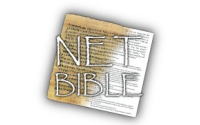July 7 – 2 Chronicles 16 thru 18 from the Old Testament
2 Chronicles 16 thru 18 –
16:1 In the thirty-sixth year of Asa’s reign, King Baasha of Israel attacked Judah, and he established Ramah as a military outpost to prevent anyone from leaving or entering the land of King Asa of Judah. 16:2 Asa took all the silver and gold that was left in the treasuries of the Lord’s temple and of the royal palace and sent it to King Ben Hadad of Syria, ruler in Damascus, along with this message: 16:3 “I want to make a treaty with you, like the one our fathers made. See, I have sent you silver and gold. Break your treaty with King Baasha of Israel, so he will retreat from my land.” 16:4 Ben Hadad accepted King Asa’s offer and ordered his army commanders to attack the cities of Israel. They conquered Ijon, Dan, Abel Maim, and all the storage cities of Naphtali. 16:5 When Baasha heard the news, he stopped fortifying Ramah and abandoned the project. 16:6 King Asa ordered all the men of Judah to carry away the stones and wood that Baasha had used to build Ramah. He used the materials to build up Geba and Mizpah.
16:7 At that time Hanani the prophet visited King Asa of Judah and said to him: “Because you relied on the king of Syria and did not rely on the Lord your God, the army of the king of Syria has escaped from your hand. 16:8 Did not the Cushites and Libyans have a huge army with chariots and a very large number of horsemen? But when you relied on the Lord, he handed them over to you! 16:9 Certainly the Lord watches the whole earth carefully and is ready to strengthen those who are devoted to him. You have acted foolishly in this matter; from now on you will have war. 16:10 Asa was so angry at the prophet, he put him in jail. Asa also oppressed some of the people at that time.
Asa’s Reign Ends
16:11 The events of Asa’s reign, from start to finish, are recorded in the Scroll of the Kings of Judah and Israel. 16:12 In the thirty-ninth year of his reign, Asa developed a foot disease. Though his disease was severe, he did not seek the Lord, but only the doctors. 16:13 Asa passed away in the forty-first year of his reign. 16:14 He was buried in the tomb he had carved out in the City of David. They laid him to rest on a bier covered with spices and assorted mixtures of ointments. They made a huge bonfire to honor him.
Jehoshaphat Becomes King
17:1 His son Jehoshaphat replaced him as king and solidified his rule over Israel. 17:2 He placed troops in all of Judah’s fortified cities and posted garrisons throughout the land of Judah and in the cities of Ephraim that his father Asa had seized.
17:3 The Lord was with Jehoshaphat because he followed in his ancestor David’s footsteps at the beginning of his reign. He did not seek the Baals, 17:4 but instead sought the God of his ancestors and obeyed his commands, unlike the Israelites. 17:5 The Lord made his kingdom secure; all Judah brought tribute to Jehoshaphat, and he became very wealthy and greatly respected. 17:6 He was committed to following the Lord; he even removed the high places and Asherah poles from Judah.
17:7 In the third year of his reign he sent his officials Ben-Hail, Obadiah, Zechariah, Nethanel, and Micaiah to teach in the cities of Judah. 17:8 They were accompanied by the Levites Shemaiah, Nethaniah, Zebadiah, Asahel, Shemiramoth, Jehonathan, Adonijah, Tobijah, and Tob-Adonijah, and by the priests Elishama and Jehoram. 17:9 They taught throughout Judah, taking with them the scroll of the law of the Lord. They traveled to all the cities of Judah and taught the people.
17:10 The Lord put fear into all the kingdoms surrounding Judah; they did not make war with Jehoshaphat. 17:11 Some of the Philistines brought Jehoshaphat tribute, including a load of silver. The Arabs brought him 7,700 rams and 7,700 goats from their flocks.
17:12 Jehoshaphat’s power kept increasing. He built fortresses and storage cities throughout Judah. 17:13 He had many supplies stored in the cities of Judah and an army of skilled warriors stationed in Jerusalem. 17:14 These were their divisions by families:
There were a thousand officers from Judah. Adnah the commander led 300,000 skilled warriors, 17:15 Jehochanan the commander led 280,000, 17:16 and Amasiah son of Zikri, who volunteered to serve the Lord, led 200,000 skilled warriors.
17:17 From Benjamin, Eliada, a skilled warrior, led 200,000 men who were equipped with bows and shields, 17:18 and Jehozabad led 180,000 trained warriors.
17:19 These were the ones who served the king, besides those whom the king placed in the fortified cities throughout Judah.
Jehoshaphat Allies with Ahab
18:1 Jehoshaphat was very wealthy and greatly respected. He made an alliance by marriage with Ahab, 18:2 and after several years went down to visit Ahab in Samaria. Ahab slaughtered many sheep and cattle to honor Jehoshaphat and those who came with him. He persuaded him to join in an attack against Ramoth Gilead. 18:3 King Ahab of Israel said to Jehoshaphat, “Will you go with me to attack Ramoth Gilead?” Jehoshaphat replied to the king of Israel, “I will support you; my army is at your disposal and will support you in battle.” 18:4 Then Jehoshaphat added, “First seek an oracle from the Lord.” 18:5 So the king of Israel assembled 400 prophets and asked them, “Should we attack Ramoth Gilead or not?” They said, “Attack! God will hand it over to the king.” 18:6 But Jehoshaphat asked, “Is there not a prophet of the Lord still here, that we may ask him?” 18:7 The king of Israel answered Jehoshaphat, “There is still one man through whom we can seek the Lord’s will. But I despise him because he does not prophesy prosperity for me, but always disaster. His name is Micaiah son of Imlah. Jehoshaphat said, “The king should not say such things!” 18:8 The king of Israel summoned an officer and said, “Quickly bring Micaiah son of Imlah.”
18:9 Now the king of Israel and King Jehoshaphat of Judah were sitting on their respective thrones, dressed in their royal robes, at the threshing floor at the entrance of the gate of Samaria. All the prophets were prophesying before them. 18:10 Zedekiah son of Kenaanah made iron horns and said, “This is what the Lord says, ‘With these you will gore Syria until they are destroyed!’” 18:11 All the prophets were prophesying the same, saying, “Attack Ramoth Gilead! You will succeed; the Lord will hand it over to the king!” 18:12 Now the messenger who went to summon Micaiah said to him, “Look, the prophets are in complete agreement that the king will succeed. Your words must agree with theirs; you must predict success!” 18:13 But Micaiah said, “As certainly as the Lord lives, I will say what my God tells me to say!”
18:14 Micaiah came before the king and the king asked him, “Micaiah, should we attack Ramoth Gilead or not?” He answered him, “Attack! You will succeed; they will be handed over to you.” 18:15 The king said to him, “How many times must I make you solemnly promise in the name of the Lord to tell me only the truth?” 18:16 Micaiah replied, “I saw all Israel scattered on the mountains like sheep that have no shepherd. Then the Lord said, ‘They have no master. They should go home in peace.’” 18:17 The king of Israel said to Jehoshaphat, “Didn’t I tell you he does not prophesy prosperity for me, but disaster?” 18:18 Micaiah said, “That being the case, hear the word of the Lord: I saw the Lord sitting on his throne, with all the heavenly assembly standing on his right and on his left. 18:19 The Lord said, ‘Who will deceive King Ahab of Israel, so he will attack Ramoth Gilead and die there?’ One said this and another that. 18:20 Then a spirit stepped forward and stood before the Lord. He said, ‘I will deceive him.’ The Lord asked him, ‘How?’ 18:21 He replied, ‘I will go out and be a lying spirit in the mouths of all his prophets.’ The Lord said, ‘Deceive and overpower him. Go out and do as you have proposed.’ 18:22 So now, look, the Lord has placed a lying spirit in the mouths of all these prophets of yours; but the Lord has decreed disaster for you.” 18:23 Zedekiah son of Kenaanah approached, hit Micaiah on the jaw, and said, “Which way did the Lord’s spirit go when he went from me to speak to you?” 18:24 Micaiah replied, “Look, you will see in the day when you go into an inner room to hide.” 18:25 Then the king of Israel said, “Take Micaiah and return him to Amon the city official and Joash the king’s son. 18:26 Say, ‘This is what the king says: “Put this man in prison. Give him only a little bread and water until I return safely.”’” 18:27 Micaiah said, “If you really do return safely, then the Lord has not spoken through me!” Then he added, “Take note, all you people.”
18:28 The king of Israel and King Jehoshaphat of Judah attacked Ramoth Gilead. 18:29 The king of Israel said to Jehoshaphat, “I will disguise myself and then enter the battle; but you wear your royal attire.” So the king of Israel disguised himself and they entered the battle. 18:30 Now the king of Syria had ordered his chariot commanders, “Do not fight common soldiers or high ranking officers; fight only the king of Israel!” 18:31 When the chariot commanders saw Jehoshaphat, they said, “He must be the king of Israel!” So they turned and attacked him, but Jehoshaphat cried out. The Lord helped him; God lured them away from him. 18:32 When the chariot commanders realized he was not the king of Israel, they turned away from him. 18:33 Now an archer shot an arrow at random and it struck the king of Israel between the plates of his armor. The king ordered his charioteer, “Turn around and take me from the battle line, for I am wounded.” 18:34 While the battle raged throughout the day, the king stood propped up in his chariot opposite the Syrians. He died in the evening as the sun was setting.




